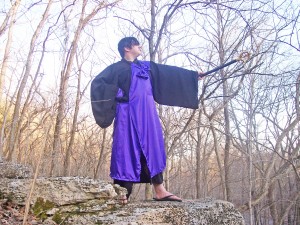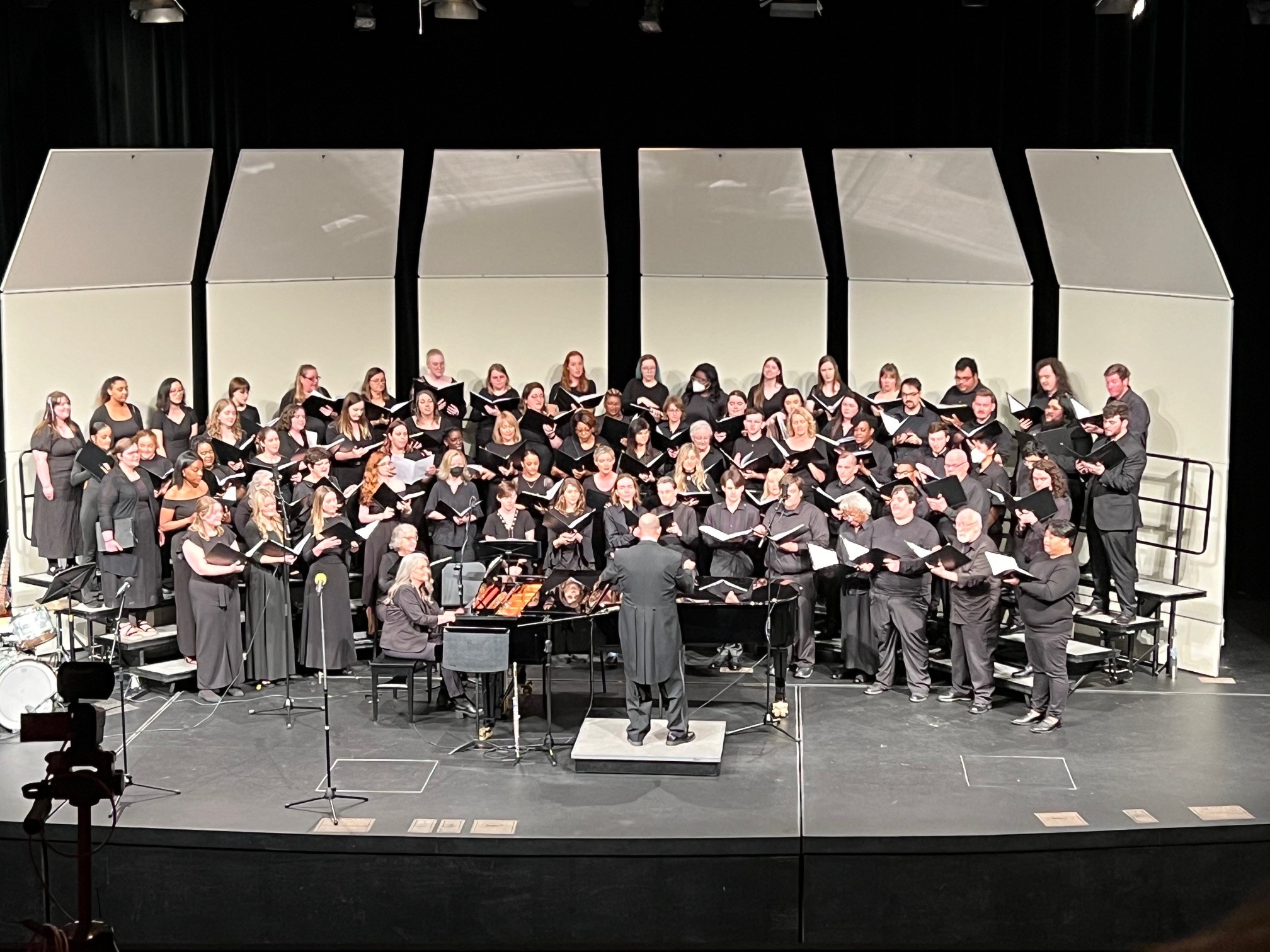Meramec students participate in cosplay craze. The word “cosplay” is a combination of the words “costume” and “play” and it means to dress up as a character from anime, graphic novels, video games or movies.

Kait Thomas
– Staff Designer –
Fitting in has always been a part of the human condition. Everyone, despite what they say, worries about being judged by their peers. Many people worry about being called “weird” and being shunned for it. There’s one group that embraces their uniqueness and flaunts it proudly: cosplayers.
“Cosplay is walking art. It takes so much time, effort and money to recreate a character and bring them to life,” Maeve Mai, 19, said.
The word “cosplay” is a combination of the words “costume” and “play.” It means to dress up as a character from either anime, graphic novels, video games or movies.
Some cosplayers such as Mai first got into cosplay because she “loved standing out,” but other cosplayers such as Sheila Netteler, 34, became interested despite her introverted personality.
“I have changed drastically since I started cosplaying. Before, I used to be a secluded, shy person. I didn’t socialize much and because of it, didn’t really have many social friends; mainly net friends and a small handful of personal friends,” Netteler said. “Since I started going to cons and meeting people dressed up, it helped me overcome my extreme shyness and fears and allowed me to make new friends. I have been a lot happier too, almost as if I had found a part of me that I didn’t know existed. It gave me a place where I felt I belonged.”
One place where someone is guaranteed to see cosplayers running around are anime conventions, which are held on nearly every continent during the year and last an entire weekend. AnimeCons (http://animecons.com) lists a full schedule as far ahead as 2015 with basic information like location and registration prices and links to websites for the conventions.
Once cosplayers-to-be discover conventions, most become rather invested in them. However, STLCC-Meramec student Jennifer Suntinger, 19, said cosplay isn’t the only reason for attending conventions.
“Friends [are a reason]. Anime conventions would be really boring without the friend factor. Usually I hear people complain about certain panels being really sucky and how the convention is boring. I don’t realize it most of the time because I was with friends just hanging out, taking pictures and such. Granted, there still has to be fun events to pass the time and keep us interested, but the experience is truly heightened with friends,” Suntinger said.
Conventions have become a place for cosplayers to freely express themselves and being judged is just about the last thing on their minds.
“I have enough self-confidence to know that other peoples’ opinions don’t matter that much. They either don’t understand or are purposely trying to be mean. I don’t listen to harsh words of people who are small-minded enough to insult someone for being themselves and having fun,” Netteler said.
More often than not, conventions don’t have the power to bar regular people from entering the facility, so intermingling between the two groups is inevitable. Cosplayers receive a variety of different reactions from the noncosplayers, but according to Aura Slavit, 19, most of them are positive.
“The regular people are always surprised. At the hotel we were staying at, the people at the front desk were very curious about our costumes, but they were nice about it. They genuinely wanted to know why we were dressing up, who we were supposed to be, and then they complimented us,” Slavit said. “A lot of people just want to know and are curious. Of course we run into the groups of people that give us nasty looks and laugh, but I’ve just been around it for a long time now that it doesn’t bother us, because we feel awesome, so that’s all that should matter.”
However, Netteler said there are some drawbacks to having noncosplayers around.
“A hotel, in my opinion, is not really a good environment for [conventions] unless the entire hotel is reserved for it only. But having other people not at the con tends to ruin the mood and causes unnecessary drama with the hotel staff. I think conventions should be held in convention halls since that is what they are for; gives more room and allows the proper setting for freedom of expression and movement,” Netteler said.
Many cosplayers experience personal benefits from cosplaying. Former Meramec student Michael Turnbough, 20, said he is able to be more himself at a con than in normal life. Other cosplayers like Slavit get a confidence boost.
“Normally I hate my appearance. I think I look terrible all the time, and I honestly cannot pick out one good thing that I like about myself, but at a con, people are constantly taking pictures, telling me I’m adorable, wanting hugs, wanting to talk to me, everything. I feel beautiful and I feel like a celebrity. I get to come out of my shell and have all eyes on me for once; it’s a huge deal. My confidence is through the roof at a con,” Slavit said.
Mai said conventions aren’t the only places for people to cosplay. Between conventions, cosplayers plan events like picnics, meet-ups, and even cosplay at attractions like the Missouri Botanical Gardens.
Most cosplayers share similar reasons for cosplaying.
“What I like most about cosplaying is meeting new people at conventions and expressing my love for anime and games. When I first started cosplaying, I did it to challenge myself in costume design. Now I do it for friends and group and couple cosplays,” Mai said.
In the end, cosplayers are regular people who want to express themselves as they see fit and not be judged for it.
“All cosplay really is is becoming someone you’re normally not in everyday life. And the con experience gives people the place where they can freely express the personalities that they couldn’t express on a daily basis,” Netteler said.











